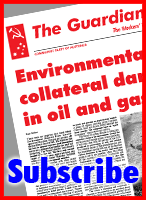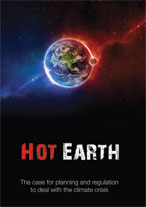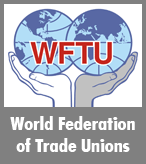Not an accident, a crime
The Mines are Weeping

Dear Friends,
Greetings from the desk of the Tricontinental: Institute for Social Research.
The bodies of 300 Brazilians have gone cold, drowned in the 13 million cubic metres of iron-ore sludge that swept out of a tailing dam at a mine owned by Vale – one of the world’s largest mining firms. Outrage was the normal emotion that greeted the news from Brumadinho, north of Rio de Janeiro.
In 1984, one of Brazil’s most celebrated poets – Carlos Drummond de Andrade (1902-1987) – wrote Lira Itabirana. It could have been written yesterday.
I
The river? Sweet.
Vale? Bitter.
Oh, how much we wish
the burden was lighter
II
Between the State
and multinationals,
Pain
III
The debt?
Internal.
External.
Eternal.
IV
How many tons of iron
do we export?
How many tears
do we hide without a scream
The tragedy at Brumadinho forced the government to act, but as all governments of this kind do, they arrested the low-level managers. The long arm of the law is shortened when it comes to corporate crimes. Vale (market capitalisation at US$77.4 billion) will remain untouched. A few fines will be paid, but this likely will be taken care of by insurance companies. There is no confirmation yet that the iron-ore mud is toxic.
Three years ago, another dam burst at another mine co-run by Vale and the Australian mining giant BHP Billiton in the town of Mariana (Brazil). Then, the companies said that the mud was not toxic, and the same song and dance began about compensation and new regulations.
The UN’s Office of the High Commissioner for Human Rights released an important – much neglected – statement at that time about the 2015 Mariana disaster. UN Special Rapporteur on human rights and the environment John Knox and Special Rapporteur on human rights and hazardous substances and wastes Baskut Tuncak wrote:
The steps taken by the Brazilian government, Vale and BHP Billiton to prevent harm were clearly insufficient. The government and companies should be doing everything within their power to prevent further harm, including exposure [of the miners and the residents of the area] to heavy metals and other toxic chemicals.
The 2015 dam burst released 50 million tonnes of iron ore waste, enough to fill 20,000 Olympic swimming pools. Nothing was done at that time, and nothing will be done now.
There is too much money to be made from the extractive industries, who are treated like royalty by governments around the world as they come and make demands on countries, pay miserly rents to destroy the landscape and make fabulous profits by cheating the earth of its riches.
The firms that dominate this sector – from Glencore to Barrick – are largely based in Australia, Canada, China, Great Britain, Argentina and Brazil; the largest, Glencore, is based in Switzerland. Their annual revenues are in the hundreds of billions, their executives living lavish lives, their heads of government protecting them from the embarrassment of their profession.
Canada is home to half of the world’s mining firms, which have attracted the attention of the United Nations for their abuses of human rights and the environment. What the UN pointed towards is the behaviour of Canadian firms such as Barrick Gold (which has run into trouble with its private security force in the highlands of Porgera in Papua New Guinea), Goldcorp (which is accused of contamination of aquifers in Zacatecas, Mexico) and Hudbay Mineral (which is accused of being party to violent evictions, during which women were sexually assaulted, in Lote Ocho, Guatemala).
It is easy to hide behind the charming smile of Justin Trudeau rather than to establish an independent body to investigate human rights abuses by the 1,500 Canadian mining firms that operate 8,000 sites in over a hundred countries.
McDiyan Robert Yapari, a leader of the Akali Tange Association in Porgea (Papua New Guinea) writes to us that Barrick Gold and its partner (Zijin Mining of China) have about 940 allegations of human rights abuses against them. The Association’s calls for investigation “have fallen on deaf ears”, he says. At Tricontinental: Institute for Social Research, we are producing a Briefing on Canada’s mining firms and their impact on the world. For now, please visit our friends at Mining Watch (Canada) for more details.
In his remarkable Condition of the English Working Class (1844), Friedrich Engels wrote: “The coal mine is the scene of a multitude of the most terrifying calamities, and these come directly from the selfishness of the bourgeoisie”.
What happened in Brumadinho, as our Tricontinental: Institute for Social Research office in São Paulo put it in a terrific report, is not an accident but a crime. So are the other mining crimes from Soma (Turkey) to Copiapó (Chile). Major mining firms care little for the lives and livelihood of the miners and of those who live in the vicinity of the mines. These areas are the planet’s sacrifice zones.
The large corporations have declared a war against the planet, their machinery digging deeper and deeper to make mountains of profit for the few as many millions of people perish into starvation and disorientation. The people who live in these sacrifice zones are treated as disposable, as worthless.
Mining crimes are ceaseless. They seem to come each day. Some are more spectacular than others. It is hard to forget the thirty-three miners who sat 700 metres inside the Copiapó mine in Chile owned by the San Esteban Mining Company for 69 days in 2010. When the men emerged from the mine – a miraculous rescue operation – they told the journalist Héctor Tobar, “the mine was weeping a lot” (La mina está llorando mucho).
The mine weeps, and so do the miners.
Not to be swept away in the mud, forgotten and discarded.
Warmly,













